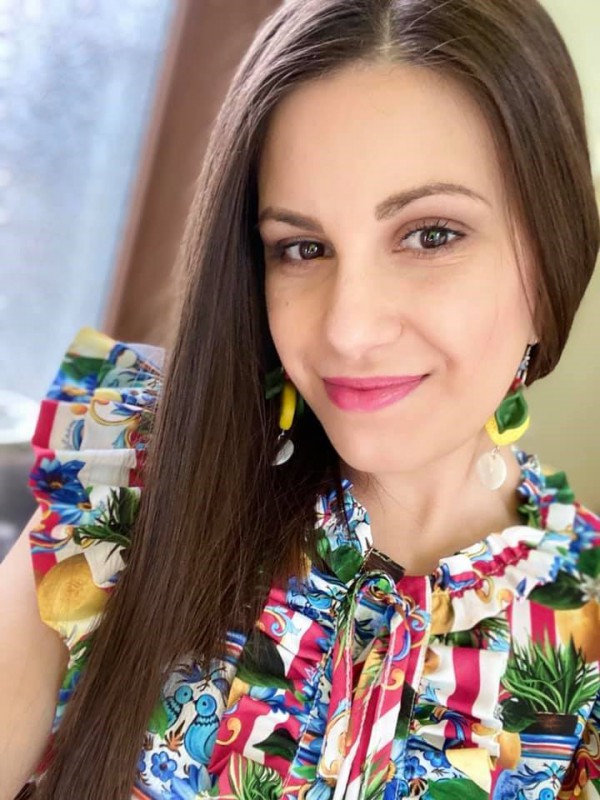Joanna Stoycheva
Interview by Carey Sargent, EPFL, NCCR MARVEL
Were you always interested in science?
I think my interest in science was piqued by the first chemist in my life - my first chemistry teacher. She is still my role model and today I’m happy to call her a friend. Thank you, Mrs. Bozova! Then, in high school, I chanced on another fantastic chemist - again a woman, Mrs. Chobanova. Having them as examples, I decided to study chemistry at university. There I had the chance to meet the most inspiring women, who are more than just my supervisors, they are my second family - Prof. Tadjer and Assist. Prof. Romanova. They made me fall in love with quantum chemistry and molecular design and showed me how equally important is to be a good scientist and a good person.
In a nutshell, my scientific path was influenced by four amazing female chemists.

How did you hear about the INSPIRE Potentials Program?
My Bulgarian supervisors told me about the program. They received an email with information about it, considered it a great opportunity and suggested I apply.
What is your master’s project on?
I’m working in the group of Prof. Nicola Spaldin - the pioneer behind multiferroics.
Multiferroics are new materials, combining new functionalities - favorable magnetic properties (ferromagnetic) with interesting electrical properties (ferroelectric). They are particularly appealing because the combination of these two ferroic orders gives us the opportunity to switch magnetization by electric field and to switch ferroelectric polarization by magnetic field. This can make it possible for a single device to perform more than one task.
The difficulties associated with uniting electrical and magnetic ordering could be circumvented by forming a heterostructure. I’m creating such a heterostructure, consisting of two of the most interesting multiferroic materials - bismuth ferrite (BiFeO3) and lanthanum ferrite (LaFeO3). I have the chance to find out what happens at the interface between them on the basis of first-principles DFT calculations.
The best part is that the experimentalists working with Prof. Spaldin have synthesized the two multiferroic materials and I am intrigued to compare their results with our theoretical predictions.
What did you like best about the INSPIRE program?
Coming from a predominantly female research group in Bulgaria, I strongly believe in the empowerment of women scientists to create a better living. Hence, MARVEL Master’s fellowships naturally grabbed my attention. I like the whole idea of the INSPIRE program - to inspire young women in science. What I like the most, however, is that it isn’t just about inspiration. Inspiration is something transient, and working as a scientist is a job that requires discipline - because soon after an idea settles in your mind, the inspiration it came with is gone. So, rather than inspiration, I prefer to talk about motivation. And MARVEL program is all about motivation. I found myself in an environment where everyone is friendly, polite and ready to help with a smile, where you can use all the resources you need to believe in the successful realization of your project. What also motivated me to continue working on my project was the feeling that there are things and processes waiting to be discovered and described. The sense that my work matters.
MARVEL is a marvellous program also because it gives you the chance to work with pioneers. Pioneers as the head of the group I’m currently working in - Prof. Nicola Spaldin. She is a researcher who has created her own field of research. She has invented new materials of a type once thought impossible to make - multiferroics. How often does one have the opportunity to work with such a brilliant intellectual?!
Do women face particular challenges in the sciences?
I think it depends on a lot of factors. Coming from a country with a huge number of women scientists, I would answer with “No". I, personally, have never faced any kind of prejudices, I have never had the impression that my work would be easier if I were male. In the same time, I know that this is not the global case. And if we, women, want to be treated equally, we have to stand up, we have to apply, we have to request, we have to challenge... we have to create the equality. To my mind, there has to be more of a spotlight on female scientists - it is important that we seek out positive role models.
Any advice for young girls interested in the field?
As Barbie has said - “You can be anything”. If you feel that science is your destiny, give it much of your time. Don’t be afraid to make a mistake, be patient and self-critical - all the hard work pays off. In my humble opinion, however, the most important thing is to stay a good and loyal person.
Finally, I would like to share my favorite quote: “Whether you believe you can or you believe you can’t, you’re right.” This is the truth itself.
